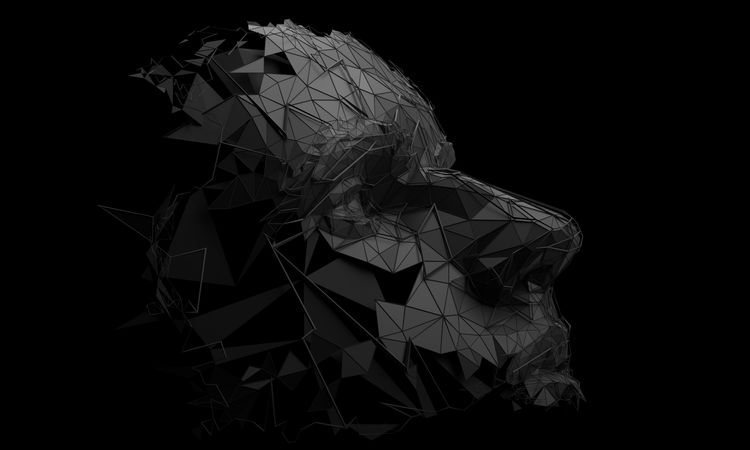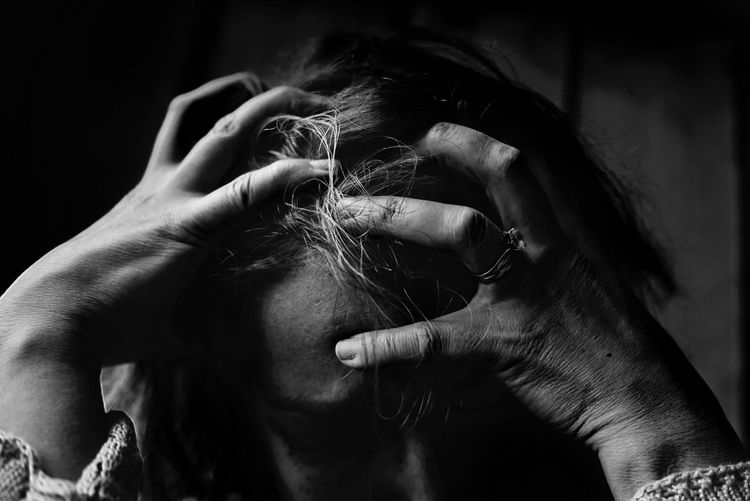Chemical Imbalance and Depression: The Lie We've All Been Sold

The doctor looks over her clipboard while you sit there feeling a mix of dread and confusion.
"You see," she says, "you were born with a very special brain. According to our analysis, your brain doesn’t produce the necessary chemicals required to generate happiness."
"How else could you explain it? From where I’m sitting, you have everything a person could want; health, relative safety, and a stable family. Depression simply doesn’t make sense for a person like you.
The only thing we can boil this down to is a chemical imbalance. The life you lead isn’t broken. Your brain is broken. Get it?"
This insanity has never failed to boil my blood.
Depression is infinitely more complex than the number of chemicals in a person’s brain. The brain still plays a role, as it does with everything, but chemical imbalance is a myth that needs to be eradicated from our understanding of depression and mental health.
The evidence is coming to suggest that depression has more to do with unmet psychological needs, trauma, temperament, and oppressive environments. And its solutions come from addressing it as an ailment of the mind, and not the brain.
The Origins of a Myth
Johann Hari is a journalist with a long history of depression.
He began his investigation into the world of depression treatment by speaking with Harvard Professor Irving Kirsh, a former psychiatrist.
In the ’90s Kirsh regularly gave his patients antidepressants to treat a supposed chemical imbalance. But when Kirsh began examining the data for the effectiveness of various depression medications in 2014, he started having realizations.
Kirsh discovered that no matter what type of antidepressant was used in treatment, whether it was made to increase or decrease dopamine, norepinephrine, or serotonin, its effect on depression did not change.
“It simply does not matter what is in the medication — it might increase serotonin, decrease it, or have no effect on serotonin at all. The effect on depression is the same.”
Kirsh put in a freedom of information request to gain access to data from the Food and Drug Administration. He wanted to see how pharmaceutical companies were using published studies to push their antidepressants, and what he discovered was disturbing.
The results from the studies were being cherry-picked to show antidepressants in a favorable light.
Johann Hari reported:
“To give one example: in one trial, the drug was given to 245 patients, but the drug company published the results for only 27 of them. Those 27 patients happened to be the ones the drug seemed to work for.”
Other reputable sources gave Hari similar opinions on chemical imbalance. Professor Andrew Scull of Princeton said that calling depression a serotonin deficiency was “deeply misleading and unscientific.”
Professor David Healy put it like this:
“There was never any basis for it, ever. It was just marketing copy.”
To be fair, antidepressants have given many the energy to go on with their lives and tackle their problems, regardless of the shaky foundations their effectiveness is built on.
Antidepressants make a difference, but it remains true that they are disturbingly popular, their side effects can be extreme, and coming off them after long-term use can be a dangerous, painful process.
Antidepressants are, at best, a crude answer to depression.
The Causes of Depression That Aren’t Chemical Imbalance
The disease-pill model for depression is attractive for people looking for instant relief from their pain and pharmaceutical companies looking for profit. You don’t have to be a conspiracy theorist to understand how greed trumps the wellbeing of the average person.
So what causes of depression are being put forward? How do they relate to the health of a person’s brain versus their life circumstances? These explanations are based on the eight causes of depression that Johann Hari laid out in Lost Connections.
1. Biology
Harvard Health Publishing admits that depression is more complex than a chemical imbalance, but brain structure and nerve cell communication still play a role. Although, the extent that these factors affect your mood is uncertain.
- Neuroplasticity demonstrates that our brains are constantly changing based on our decisions and our environments. Thoughts, habits, and intentions impact how the brain physically forms. The longer a person spends in a state of mind, the deeper the neurological groove that gets created. But new grooves can be carved out, as can new ways of being.
- Genes contribute to your temperament, but genes also need to be activated by an environment. A person could be prone to gloominess, anxiety, or bipolar behavior, but life experiences are what plunge you into those states. Being prone to depression does not doom you to it. And a person who’s prone to feeling pain can come to appreciate life more than a person who isn’t.
2. Trauma
Anyone can experience trauma, whether it’s through one tremendous event or one thousand small events. Trauma that goes unaddressed is a significant cause of depression.
When you go through something traumatic, the experience grafts itself onto your mind, and it won’t let go until you treat it. Bessel Van Der Kolk wrote in The Body Keeps Score that trauma is healed through human connection and understanding.
We share our experiences, as terrifying as that may be so that we can reset our minds and return to a feeling of safety and openness.
3. Disconnection from Others
Especially during the pandemic, isolation and loneliness contributed to depression. Being lonely makes you depressed. What could be more obvious?
4. Disconnection from Meaningful Values
In the western world, materialism reigns supreme. Your net worth is your personal worth, and your next financial milestone is all you look forward to. If all you value is wealth and status, you are bound to be unhappy.
5. Disconnection From Meaningful Work
People need to be able to take pride in their work. They need to see progress. They need to see that their work is making a difference for themselves and others. They need to feel a sense of autonomy and creativity. Without a clear line between effort and reward, people feel useless.
6. Disconnection From Status
Wealth inequality is severe, especially in the United States. Witnessing this disparity can leave many feeling belittled and worthless. Instead of creating our own self-worth, we find our value in climbing social ladders and comparing ourselves to our neighbors. This culminates into a culture of weak self-esteem.
7. Disconnection from Nature
Urban areas tend to produce higher levels of mental illness than greener, more natural environments. This doesn’t just apply to where we live; it applies to our bodies too. We lose connection to our primal nature without physical exercise.
8. Disconnection from a Hopeful or Secure Future
Depression is a hope parasite, and nothing brings it on more than believing that nothing can meaningfully change. This is why it’s dangerous to tell a person that their brain is flawed and it can only be corrected with medication. As Dr. Peter Breggin says: “Is that hopeful?”
In this scenario, no one is instilling a sense of responsibility or control. There is no one empowering you to triumph over what you’re dealing with. There is only the grim suggestion that you’re cut off from happiness.
More Human
A depressed person is often given a biological explanation for their problems. I wonder, does blaming their brain make them feel less guilty about being unhappy? Are they angry at themselves for being depressed because they don’t feel like they should be?
If so, then I would ask the depressed person a few questions: Where did you get your definition of a good life? Who determined your standards for happiness? If it wasn’t you who defined these things, then whose game are you playing? Is your culture turning you against yourself?
“It is no measure of health to be well adjusted to a sick society.”J. krishnamurti
When psychological needs aren’t being met, pain makes perfect sense, no matter who you are. Without examining your culture, your traumas, your relationships, your self-esteem, and your sense of hope, you assume that you simply must be broken.
Depressed people aren’t broken. They need empathy. They need to be heard. They need a chance to discover what could be wrong before they dive headfirst into brain-altering medications.
This isn’t an argument for choosing holistic magic over science. It’s an argument for treating the depressed like what they are: struggling humans. Not malfunctioning machines.



